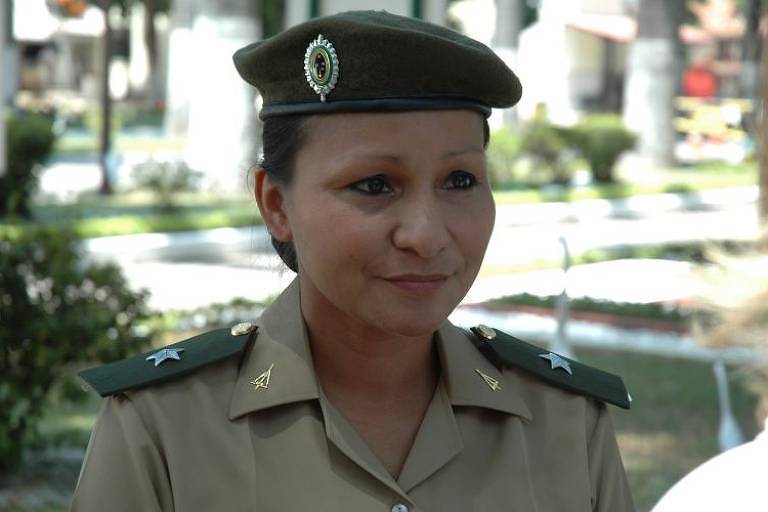Street dweller, book saleswoman, actress, athlete, physical therapist and the first female native Brazilian to join her country's army. All these labels apply to Silvia Nobre Waiãpi, 42, one of the four women among 28 men that make up Jair Bolsonaro's transition team so far. She was announced as part of the team on Wednesday (6th).
Silvia Nobre was born in a Waiãpi tribe, in the state of Amapá, and at three years old she was adopted by a family from the state capital, Macapá. At seven, she started school. "I promised myself that no matter what happened, one day I would make my country proud," she said in a late night talk show, in 2011.
She says it was that belief that held her from "getting in trouble" when she lived in the streets of Rio de Janeiro, years later. At 14, she left her one-year-old daughter in her waiãpi village, - it's common in her culture for women to have children when they are as young as 13 -- and went to Rio to improve her schooling.
With no money and no place to stay, she met a street seller, and his niece took Silvia in. She started selling her old books from door to door, which helped get a job in book publishing house. Encouraged to study Drama, she joined a theater group. In the meantime, she had another son and daughter, at 15 and 17; in her forties, she already has a granddaughter.
After graduating with a performing arts undergraduate degree, she got a job at TV Globo as an acting coach and script researcher. She also worked as an actress.
At the same time that her acting career was taking off, she discovered another passion: running. She moved on from acting to become a professional runner and received a scholarship to go back to college to study physical therapy.
When she worked as a physical therapist to a group of Brazilian marines, she discovered the military world. She applied to the Army, becoming the first native Brazilian female to join the military.
Since 2016, she leads the department of physical rehabilitation and medicine at the Army's Central Hospital, and she is very vocal about both her work at the army and issues regarding Native Brazilians. She often travels back to Amapá to visit members of her tribe.
Translated by NATASHA MADOV
